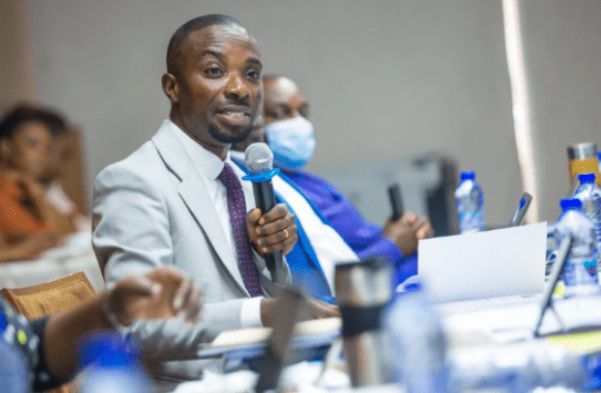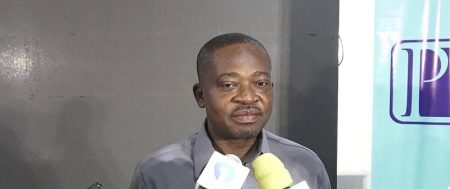Dennis Miracles Aboagye, an aide to former Vice President Dr. Mahamudu Bawumia, has issued a pointed critique of the National Democratic Congress (NDC) government’s handling of Ghana’s economic woes. Aboagye argues that the current administration’s focus on rhetoric rather than tangible action has exacerbated the hardships faced by ordinary Ghanaians. He highlights the escalating prices of essential commodities, particularly cement, as a stark example of the government’s failure to effectively manage the economy. Aboagye contends that the price of cement, a key building material crucial for development and housing, has skyrocketed from GHS85-90 to GHS130 under the NDC’s watch, placing an additional burden on citizens already grappling with economic difficulties. He emphasizes the urgency of the situation, urging the government to move beyond empty promises and implement concrete solutions to alleviate the suffering of the populace.
Aboagye’s criticism goes beyond the immediate issue of price hikes. He accuses the NDC government of engaging in a deceptive practice of claiming to prioritize fiscal prudence while simultaneously indulging in extravagant spending. He points to the government’s initial promise of a “lean government” as a stark contrast to their current spending patterns. While acknowledging the reduction in the number of ministerial appointments, Aboagye argues that this superficial downsizing has not translated into actual savings. He asserts that the NDC government is spending significantly more on government machinery than its predecessor, the Akufo-Addo administration. This, he argues, exposes a hypocrisy within the NDC’s approach, masking an expansive and costly bureaucratic apparatus behind a façade of frugality.
Furthermore, Aboagye draws a parallel to the medical condition of Kwashiorkor, a form of malnutrition characterized by a swollen abdomen despite a lean physique. He uses this analogy to describe what he terms a “Kwashiorkor economy,” where the government, while appearing smaller in size (through reduced ministerial positions), exhibits an insatiable appetite for spending. This characterization serves to highlight the perceived disconnect between the government’s pronouncements of fiscal responsibility and its actual budgetary practices. Aboagye contends that the NDC government’s actions betray a preference for optics over genuine economic management, prioritizing the appearance of efficiency while neglecting its core responsibilities of controlling expenditure and alleviating economic pressures on citizens.
Aboagye’s critique centers on the NDC government’s perceived lack of action and their alleged misrepresentation of their economic policies. He challenges the government’s narrative of fiscal responsibility by highlighting the escalating costs of essential goods and accusing them of overspending on government machinery despite promises of a leaner administration. This perceived discrepancy between rhetoric and reality forms the core of Aboagye’s argument. He urges the government to acknowledge the severity of the economic situation and prioritize practical solutions over public relations exercises. The rising cost of cement, he argues, serves as a tangible indicator of the government’s failure to effectively manage the economy and address the hardships faced by ordinary Ghanaians.
The core of Aboagye’s argument rests on the contrast between the NDC government’s projected image of fiscal prudence and its actual spending patterns. He accuses the administration of misleading the public by claiming to operate a lean government while simultaneously incurring significantly higher expenditures on government machinery than the previous administration. This contradiction, he argues, reveals a deeper issue of misplaced priorities, where the appearance of efficiency trumps genuine economic management. Aboagye insists that the government must shift its focus from rhetorical pronouncements to concrete actions that directly address the economic challenges facing the nation. He stresses the importance of tangible results over superficial measures designed to create a positive image.
In essence, Aboagye calls for a shift in the government’s approach, urging them to prioritize action over rhetoric and to address the root causes of the economic hardship experienced by ordinary Ghanaians. He uses the escalating price of cement as a tangible example of the government’s failings and accuses them of obscuring extravagant spending behind a veneer of fiscal responsibility. The “Kwashiorkor economy” analogy serves to underscore his point, depicting a government that appears small on the surface but harbors an insatiable appetite for expenditure. Aboagye’s message is clear: The government must move beyond symbolic gestures and implement concrete policies to alleviate the economic burdens faced by the citizens of Ghana. The time for talk, he argues, is over; the time for action is now.














